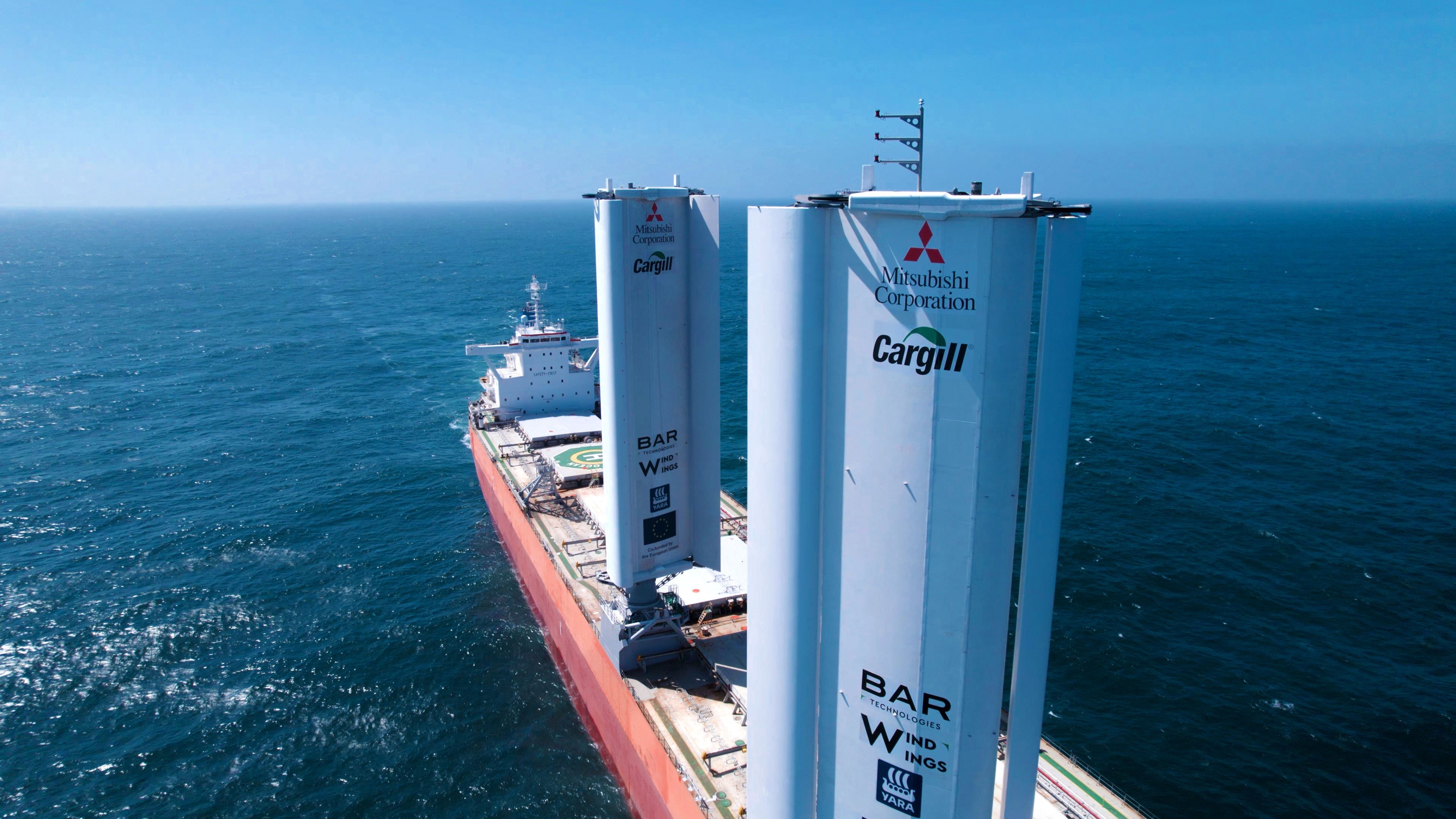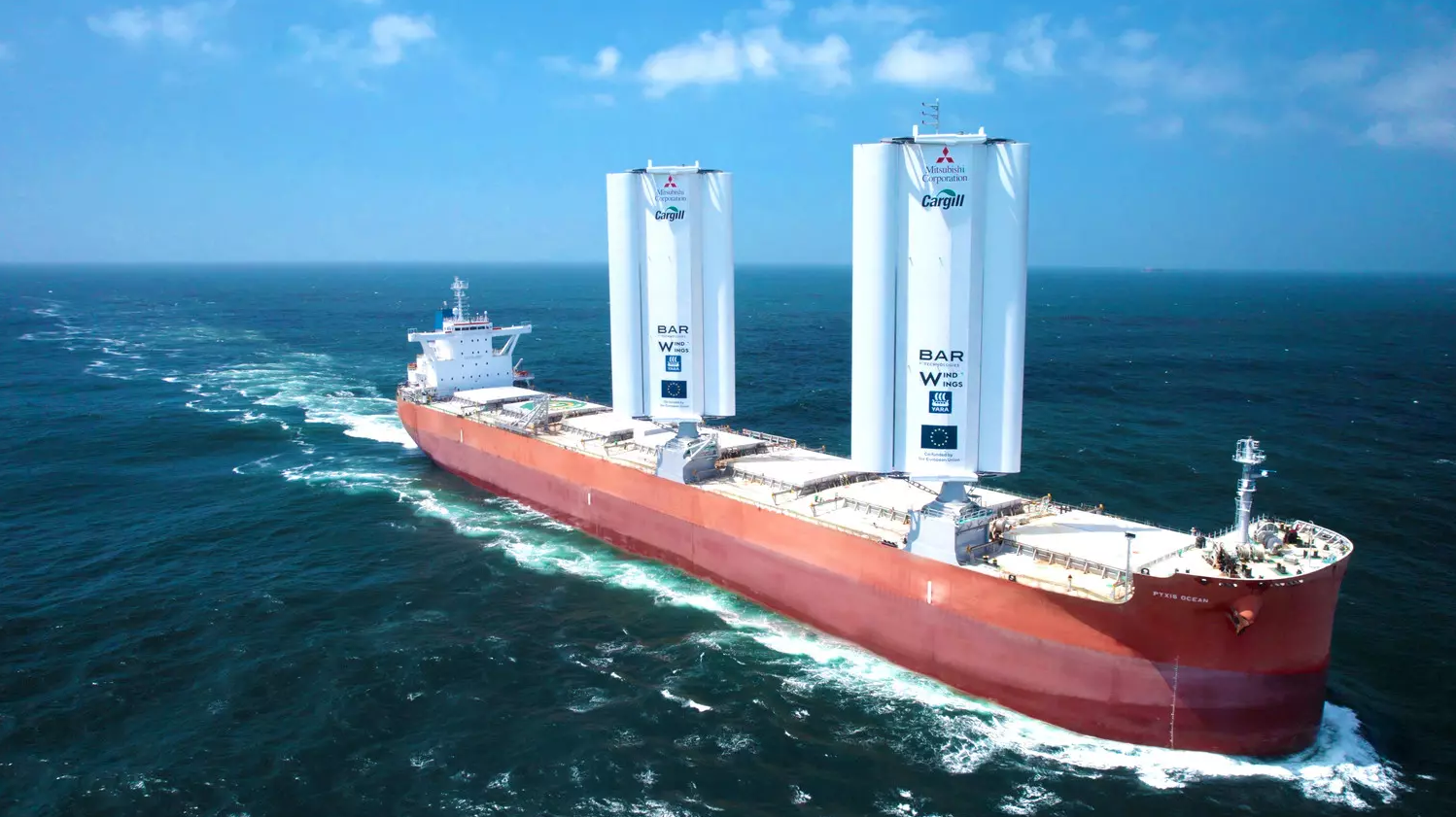

A cargo ship, a carbon-intensive vessel or typically a dirty oil guzzler, has onboarded a new green, clean technology to the open seas. Cargill and BAR Technologies have embarked on a pioneering venture as they launch the BAR Tech WindWings in collaboration with Yara Marine. This revolutionary innovation is now underway on the open seas, undergoing testing. This technology promises to introduce state-of-the-art wind propulsion to the world of commercial shipping, marking a historic first in the industry.

The Pyxis Ocean, the pioneer vessel to undergo a retrofit with cutting-edge WindWings technology, has embarked on its voyage from China, aiming high in its mission to facilitate the maritime industry's journey towards decarbonization.
Agribusiness giant Cargill charted the Mitsubishi Corporation vessel. The WindWings, described as “an advanced wind-assisted propulsion and route optimization system,” have been developed by UK-based design and engineering firm BAR Technologies and manufactured by Yara Marine Technologies.
As the World Economic Forum reported, the shipping industry is currently responsible for approximately 2.1 per cent of the world's carbon dioxide (CO2) emissions. By leveraging wind power during voyages, there is the potential to achieve a 30 per cent reduction in fuel consumption, significantly mitigating the carbon emissions associated with shipping. If this approach proves successful in maintaining its course, it has the potential to usher in a more environmentally friendly era for this traditionally polluting industry. This entails retrofitting existing vessels with sustainable solutions to decarbonize them and providing newly designed ships with an eco-friendly edge.

The World Economic Forum's November 2020 report on 'Aluminium for Climate: Exploring pathways to decarbonize the aluminium industry' stated that the aluminium industry plays a crucial role in fostering sustainability within the economy. However, being a carbon-intensive sector, it must proactively mitigate its carbon footprint. Annually, the aluminium industry is responsible for producing over 1.1 billion tonnes of CO2e (carbon dioxide equivalent) emissions, which accounts for approximately 2 per cent of the world's human-caused emissions.
The aluminium industry relies heavily on efficiently transporting bauxite ore, alumina, and primary aluminium across the globe. These essential raw materials and products must traverse vast distances, ensuring a smooth supply chain. However, the significance of shipping doesn't end with the upstream processes; it also extends to the downstream segment of the aluminium industry.
The technology mentioned earlier, which promises to revolutionize the cargo shipping sector, can potentially be a transformative force within the aluminium industry. It can be pivotal in steering the industry towards a low-carbon future, mitigating its environmental impact and securing a sustainable trajectory.
Jan Dieleman, the President of Cargill's Ocean Transportation business, said, "The maritime industry is on a journey to decarbonize—but it's not an easy one, but it is exciting. At Cargill, we have a responsibility to pioneer decarbonizing solutions across all our supply chains to meet our customer's needs and the needs of the planet. A technology like WindWings doesn't come without risk, and as an industry leader – in partnership with visionary ship owner Mitsubishi Corporation - we are not afraid to invest, take those risks and be transparent with our learnings to help our partners in the maritime transition to a more sustainable future."
Responses








